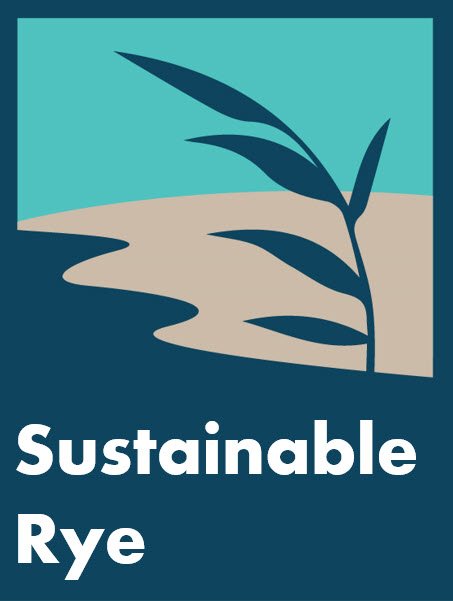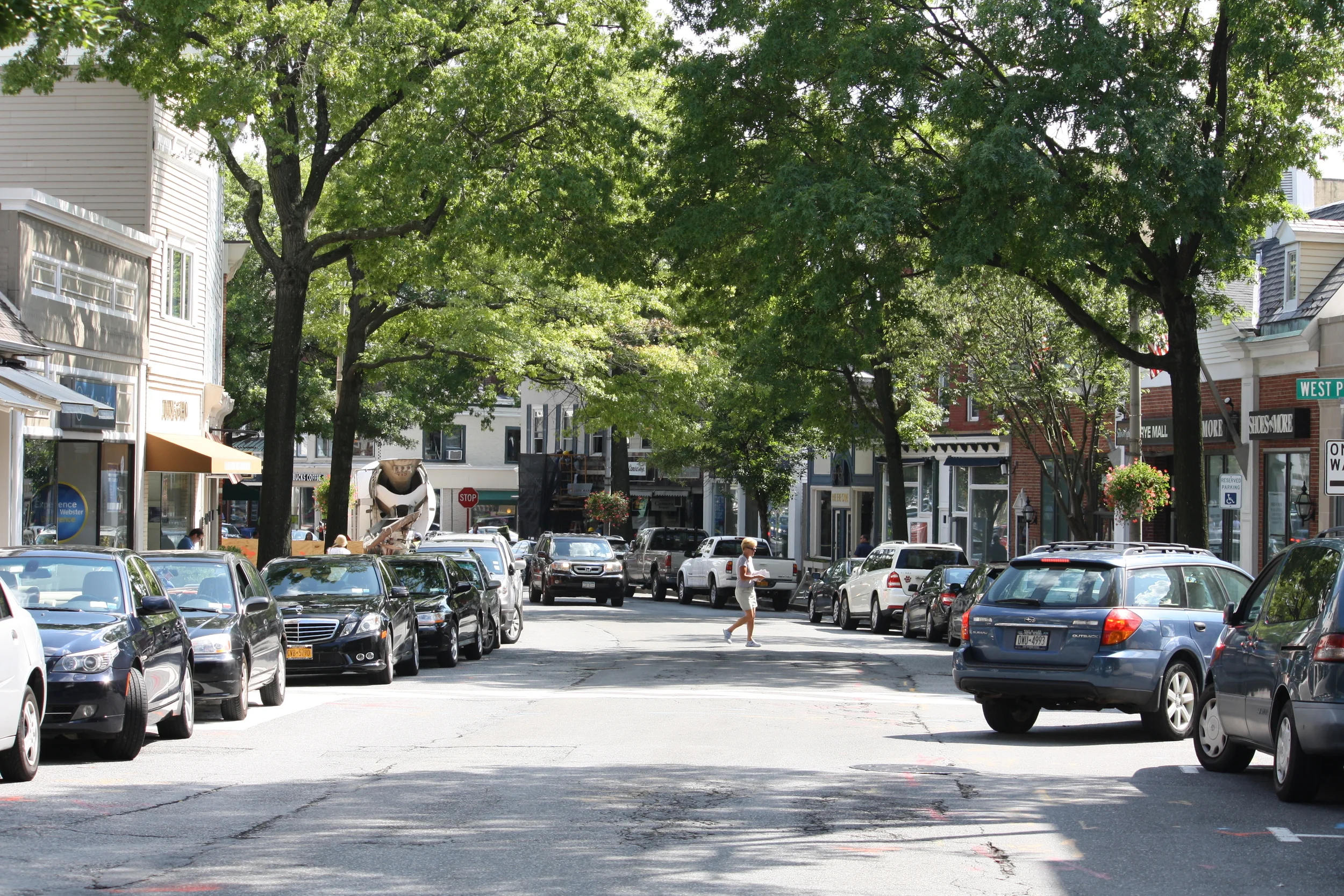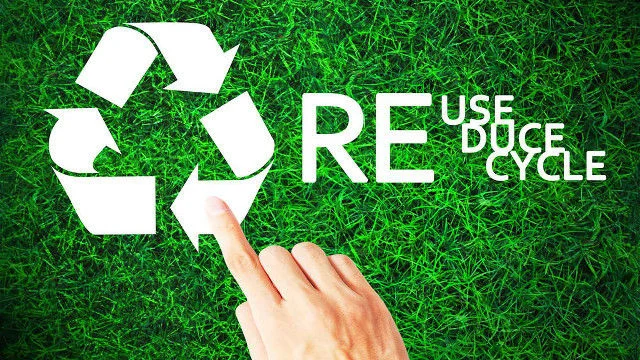Rye Sustainability Committee Tips for Homeowners
Whether you're new to Rye or have lived here for years, making your life more sustainable is simple and in most instances, inexpensive. It's simply a lifestyle change that you and your family can adopt to improve your community. We've compiled a list of tips to get you started. Try a few, or set a personal goal for yourself and your family to work your way through all the suggestions.
Do you have some ideas of your own? Contact us to share your tips!
Sections on this Page (Click to Jump to Section):
Check out our new guide to learn where to recycle or donate unwanted items.
Just So You Know: Rye's Quality-of-Life Laws
Rye has a number of quality-of-life laws to enhance the health and well-being of all residents:
Waste Reduction: Rye’s Retail Shopping Bag ordinance is designed to encourage shoppers to use their reusable bags. Learn more about RSC's Reusable Bag Initiative.
Air Quality: Rye’s ‘No Idling’ law prohibits idling for longer than 3 minutes, so please turn off your car to avoid a ticket. Learn more Idling Facts in our Resources section.
Air/Noise Pollution: Rye’s lawn maintenance equipment regulations place a ban on leaf blowers from May 1st - September 30th each year.
For an overview of the health and environmental hazards of leaf blowers, watch the presentation by RSC Chair Melissa Grieco to Rye City Council on Leaf Blowers in Rye: Impacts and Solutions. A copy of the presentation slides can be viewed here.
Please use this informational flyer as a reminder of the law for property owners or lawn maintenance providers.
Air/Noise Pollution: Rye’s rock removal and blasting restrictions were amended in 2015 to protect residents from unreasonably loud, disruptive and disturbing noise.
Around Town
while shopping
Click to enlarge.
Shop at a farmers market or buy locally-produced foods. Rye's farmers' market is open in the Theodore Fremd Ave. parking lot on Sundays, 8:30AM – 2:00PM from May through December each year. For a full list, check out Bedford 2020's map of local farms and farmers' markets.
Remember your reusable bags when shopping. For shopping bag tips, visit our Reusable Bag Section.
BYOB: Use a refillable water bottle instead of purchasing bottled water.
At the dry-cleaners, decline the plastic wrap or provide your own garment bag.
while traveling
Make it a goal to walk or bike to school, work, town or the train station at least twice a week.
Consider carpooling to school or work.
Consider a hybrid, fuel-efficient or electric car as your next car purchase.
Make sure tires are properly inflated and aligned, and fix any leaks immediately. Consider replacing worn tires with retreads to reduce the use of virgin materials.
Keep your vehicle in good running condition and have it inspected on a regular basis.
Inflate your tires to reduce gas consumption.
Turn off the car when parked.
at work or School
Use both sides of paper when copying or printing to reduce paper waste.
BYOM: Instead of a disposable cup, use a mug or thermos for your coffee.
Keep your own utensils on hand for meals on the go.
Turn off computers, printers and lights when not in use and at the end of the day.
Place a recycling bin near or under your desk for paper waste.
To reduce waste, propose a composting program, similar to the one at Midland School, at your school.
At Home
in the house
Calculate your CO2 emissions or get a home energy audit. There are a numerous sites for determining your carbon footprint:
UBerkeley's Cool Climate Calculator
The Nature Conservancy's mobile version
CO2logic's CO2 Calculator
Once you’ve completed your energy audit, make your home more energy efficient. The Department of Energy’s Energy Saver DIY project guide provides easy, step-by-step instructions to home energy efficiency improvements that will save you energy and money.
Replace incandescent light bulbs with LEDs.
Buy energy-efficient appliances (look for ENERGY STAR labels). Use the ENERGY STAR Savings Calculator to determine the true cost of an appliance.
Wash full loads of clothes in cold water and avoid the double rinse cycle.
Use aerators on faucets and shower heads.
Turn off the water when brushing teeth or washing dishes.
Put all your chargers on one extension, and turn it off when not in use.
Set air conditioning thermostats to 75-78° F. Set heating thermostats to 67-68° F degrees during the day and less at night. By turning your thermostat back 10-15 degrees for 8 hours a day, you can save 5-15% per year on your heating bill.
Use ceiling fans to circulate air.
Reduce the temperature setting on your water heater; 120 degrees is adequate for most homes.
Weather strip your windows and doors.
Purchase natural, non-toxic cleaning products.
Use low VOC paints, stains, varnishes, adhesives, and carpeting.
NYSERDA's Energy Saving Tips and NY's Dept. Environmental Conservation Water and Energy Savings pages are excellent resources for energy tips and information.
Recycle your used cosmetics and makeup products containers:
Back to MAC Program - US (MAC brand only)
Origins - US (any brand containers)
Recycle Caps with AVEDA - US
in the yard
See the Rye Healthy Yard Section for tips on caring for your yard.
Take the Rye Healthy Yard pledge by completing the RHYP Checklist.
Recycling Tips and Resources
Click to expand
General
Westchester County's Quick Recycling Guide provides a summary of what can and cannot be recycled.
Residents can customize their Rye sanitation calendar with Rye's Interactive Sanitation Calendar app.
Rye's Recycling Guidelines are here.
Rye's Sanitation Rules are here.
Rye Sustainability's Where Do I Donate? Guide provides a list of where you can donate or recycle unwanted items.
The EPA has a handy guide for how and where to e-cycle electronics.
NY's Dept. of Environmental Conservation provides a comprehensive list of waste reduction links and pamphlets all on one page.
Simple Ways to Reduce Plastic Pollution
Unnecessary waste from avoidable single-use plastic products is a prolific and increasing environmental problem. Plastic pollution in the world's oceans is projected to increase three-fold within seven years unless action is taken.
Here are some simple changes that can help reduce unnecessary plastic waste that never degrades.
Say No to Straws! Visit the Sound Shore Last Straw Page for more details.
Bring Your Own Bag. It's easy and economical to keep a few reusable bags in the back of your car.
Use reusable bottles, cups and utensils.
Bring your own container when shopping.
Avoid overly-packaged foods and buy bulk.
Reuse containers for leftovers or storage.
For more tips see these simple ways to dispose of those single-use disposables.
On Waste Pickup Day
What do you do on those days when it's windy? Here are some tips to avoid waste scattering across your lawn and into the street:
Delay: If possible, avoid putting bins out on very windy days and wait till the next collection. If not, wait until the latest possible time to put the bins out on collection day.
Mark your bins: In case they blow away, mark bins with your name and address for easy identification.
Bottles, cans, glass, plastic containers: Place heavier items on top (like glass bottles and jars) to prevent lighter plastics from blowing. If stacking, place on ground.
Newspaper: Place newspapers flat in bin with brick or rock on top to prevent blowing. If stacking, place this bin in middle.
Scrap paper: Place mixed paper in a paper bag and lay bag sideways in bin so wind can’t get it. If paper is loose in bin, place a rock or brick on top to prevent blowing. If stacking, place this bin on top.
Cardboard: Place flattened boxes between recycling bins or on ground with a weight on top.
General garbage collection: Bag all waste and ensure that the lid on your garbage is secure.
Don't wait: Bring empty bins in as soon as possible!
In the House
About to embark on a construction project? Before tossing renovation waste, consider donating it to places like Habitat for Humanity.
Old carpeting can be recycled too. Consult Carpet America Recovery Effort for nearby locations.
The Westchester FreeShare and Westchester NYFreeCycle forums will connect people who are discarding goods with those who are seeking them.
In the Yard
Grass can be recycled too! Get Started with Westchester County's Grasscyling Guide.
at the office
Consult the New York State Department of Environmental Conservation's page for businesses to learn helpful recycling tips for your business.


